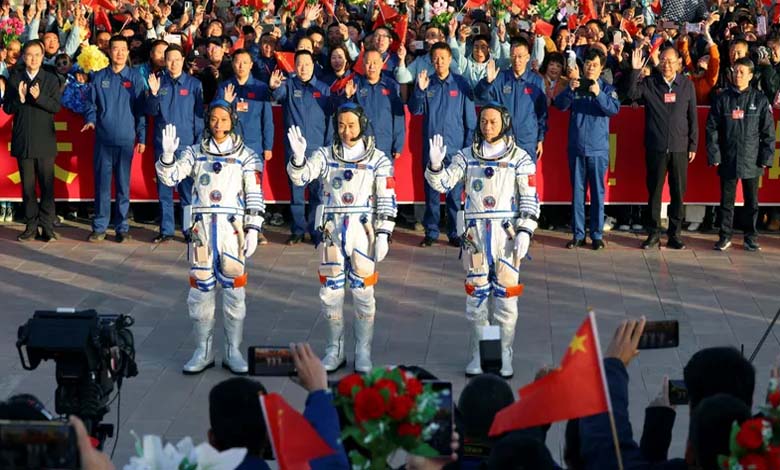China sends its “youngest crew” to space… How old are they?

China intends to send the youngest crew of astronauts to the Tiangong Space Station, according to local officials.
This move is part of China’s ongoing efforts to enhance its expertise in crewed space missions and to face challenges posed by the United States and Russia in this field.
The launch of three new astronauts in a mission known as “Shenzhou-17” will take place from the Jiuquan Launch Center in the Gobi Desert in northwestern China on Thursday at 11:14 AM GMT.
The crew includes mission commander Tang Hongbo (aged 48) and his colleagues Tang Shengji (aged 33) and Jiang Xinlin (aged 35).
The average age of the three-member crew is approximately 38 years old, which is slightly lower than the average age of the crew members in the previous “Shenzhou-16” mission.
This launch represents a significant milestone for China in crewed space missions and is part of its strategy to achieve ambitious goals in space exploration.
The Chinese Space Program
Developing a robust space program is a major goal for China as it aims to send a Chinese astronaut to the moon by 2030.
The Tiangong Space Station is now ready and represents a quantum leap in China’s space capabilities.
This station will remain in Earth’s orbit for at least ten years and will be used for research, experiments, as well as maintenance and expansion.
China is working diligently to catch up in the space sector. The country sent its first astronaut into space only in 2003, while the United States and Russia have been sending astronauts for decades.
China is determined to make advancements in space research and development and has already invested billions of dollars in its space programs.
China also aims to strengthen international cooperation in space and space experiments and seeks to become a part of the global community for space research and exploration.
The country has already invested billions of dollars in its space program. In 2019, China sent a probe that landed on the far side of the moon, a first in the world. In 2020, China returned lunar samples and completed its Beidou satellite navigation system. In 2021, China deployed a small rover on the surface of Mars.
Sending this young Chinese crew is part of these ongoing efforts towards developing a strong and advanced space program.












